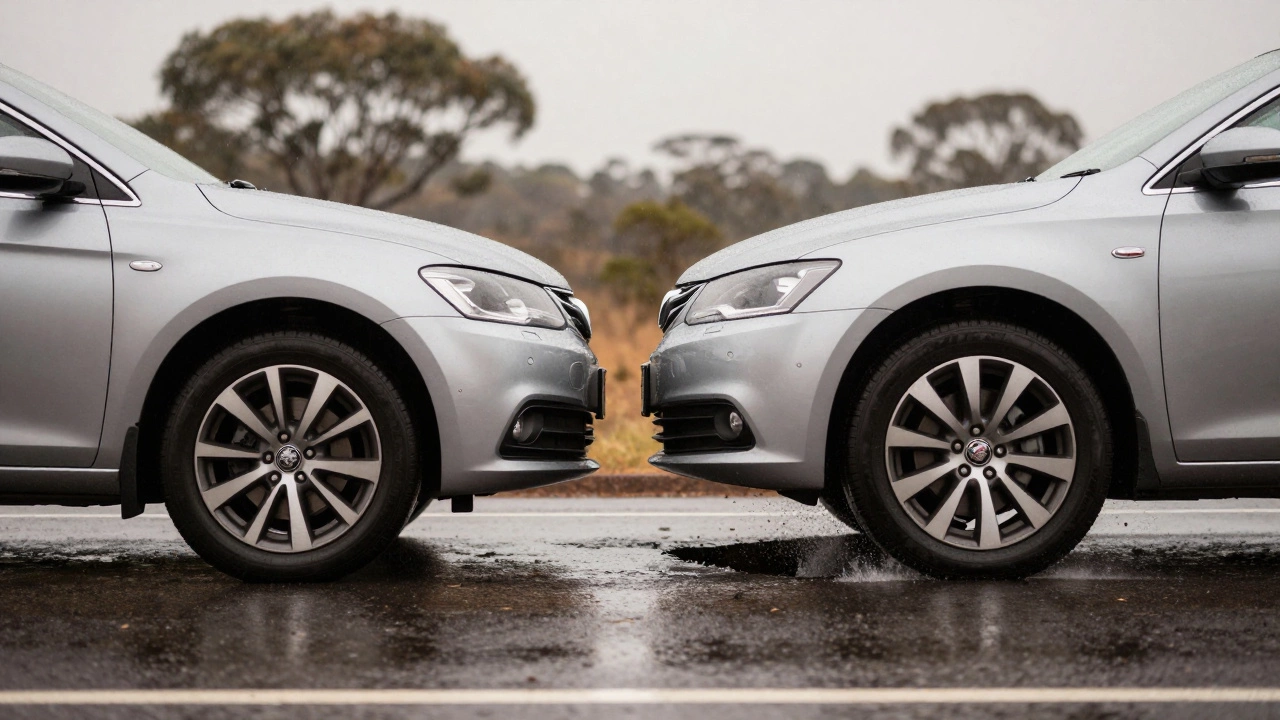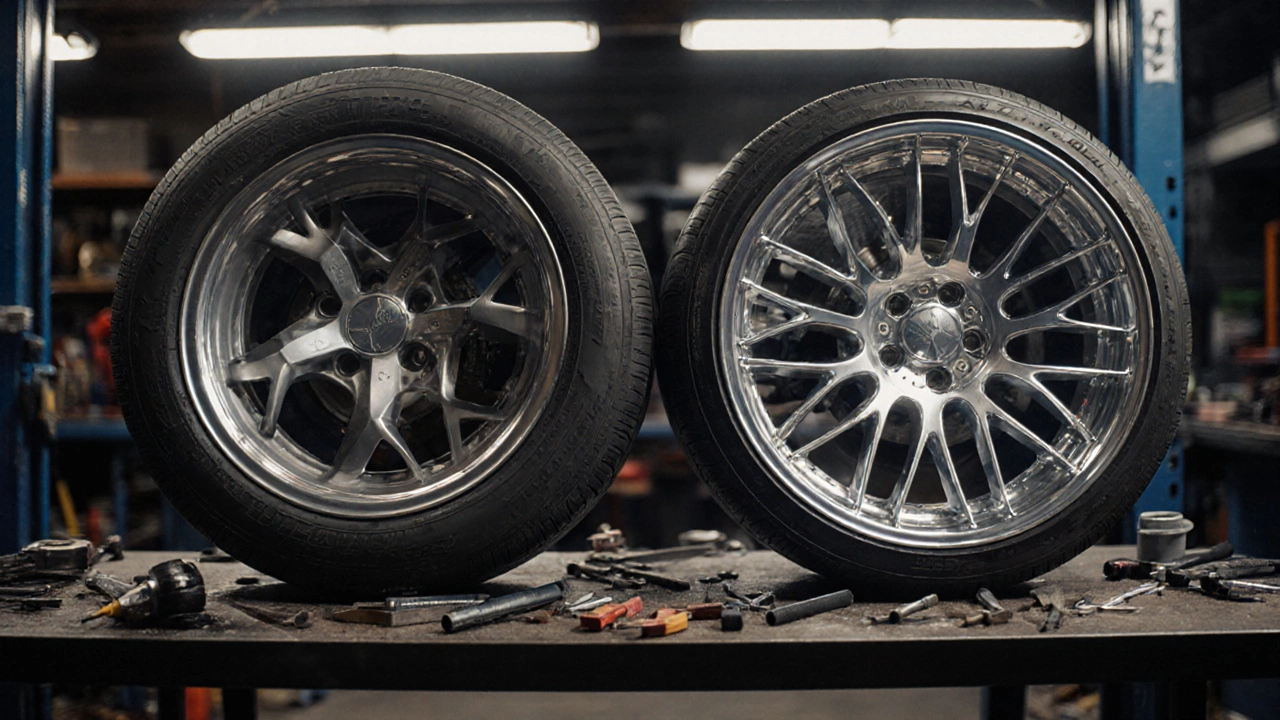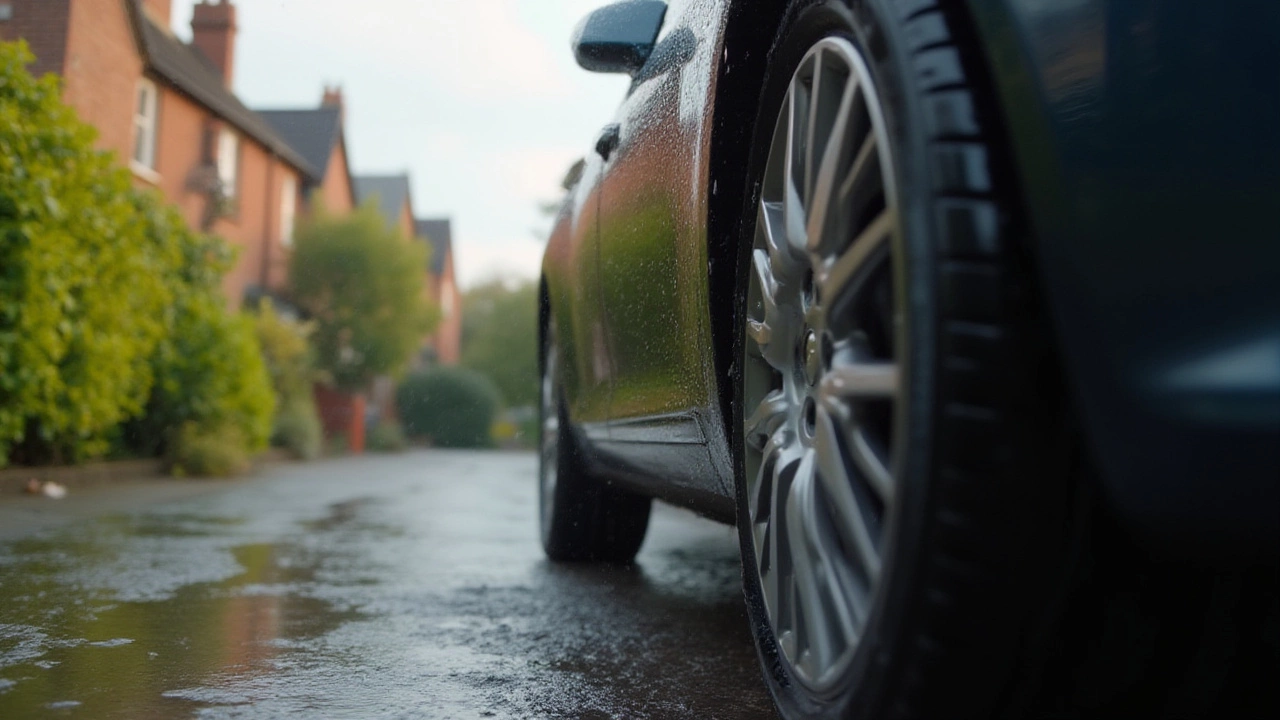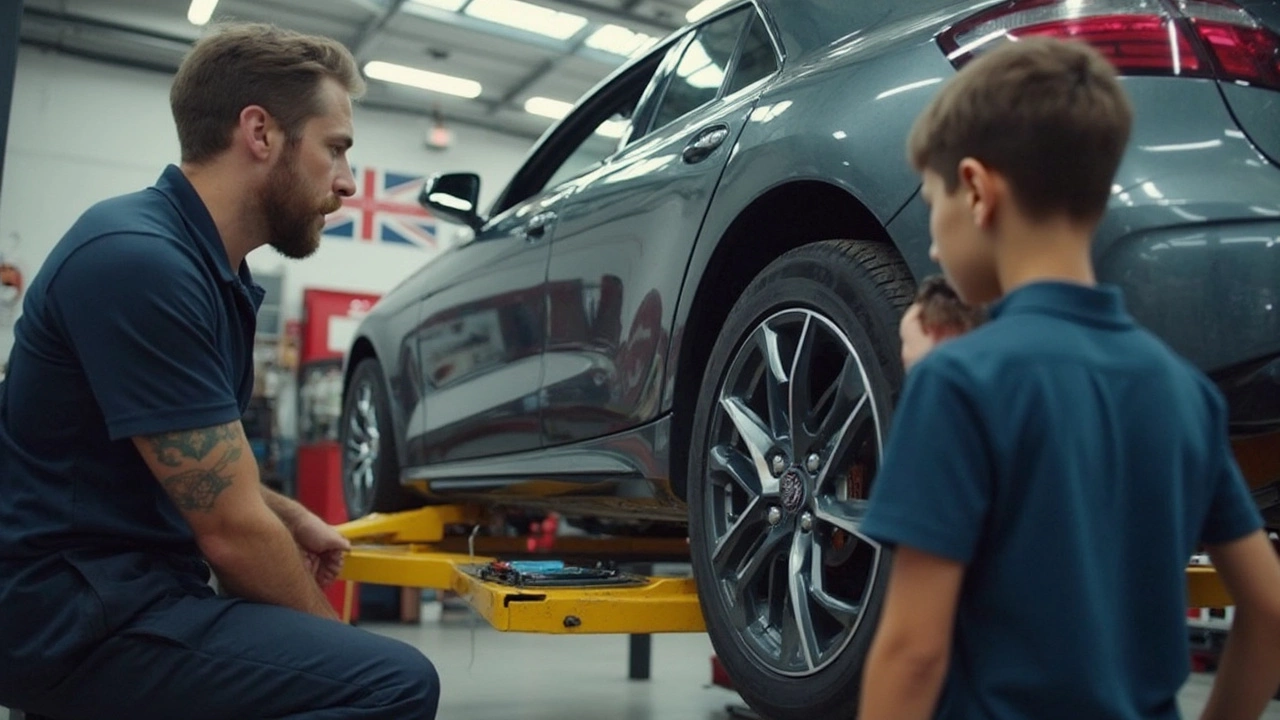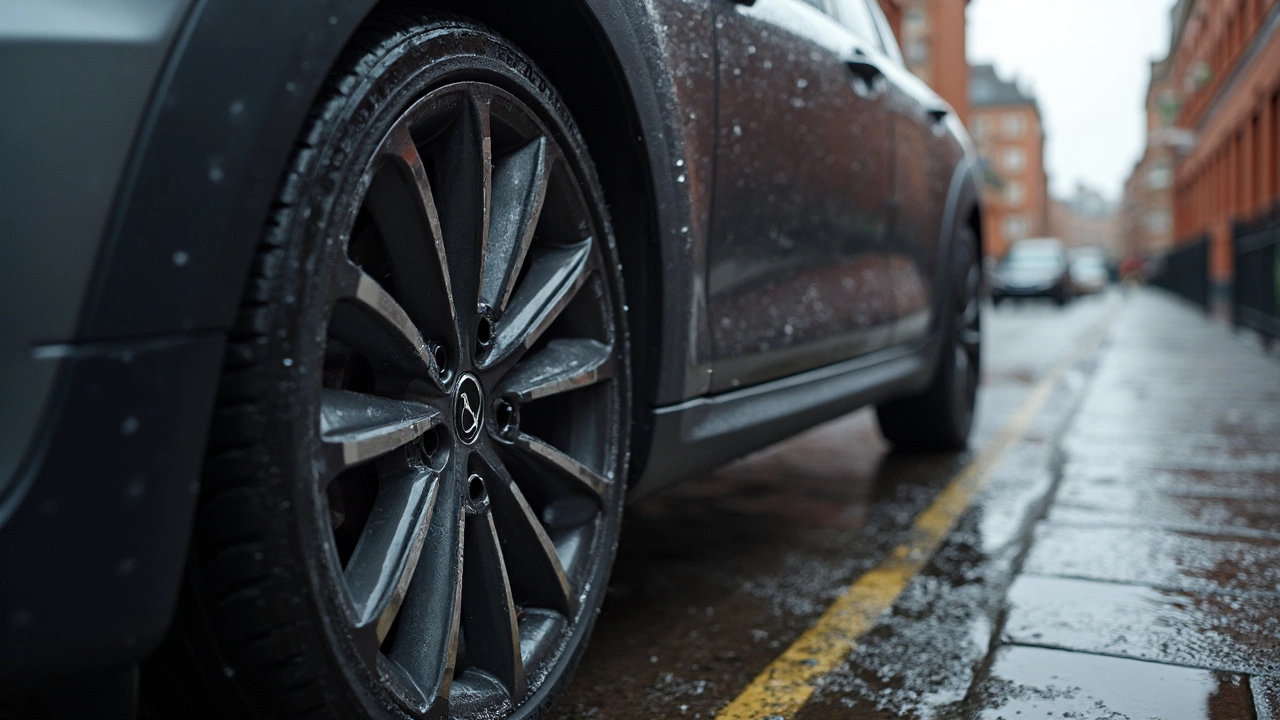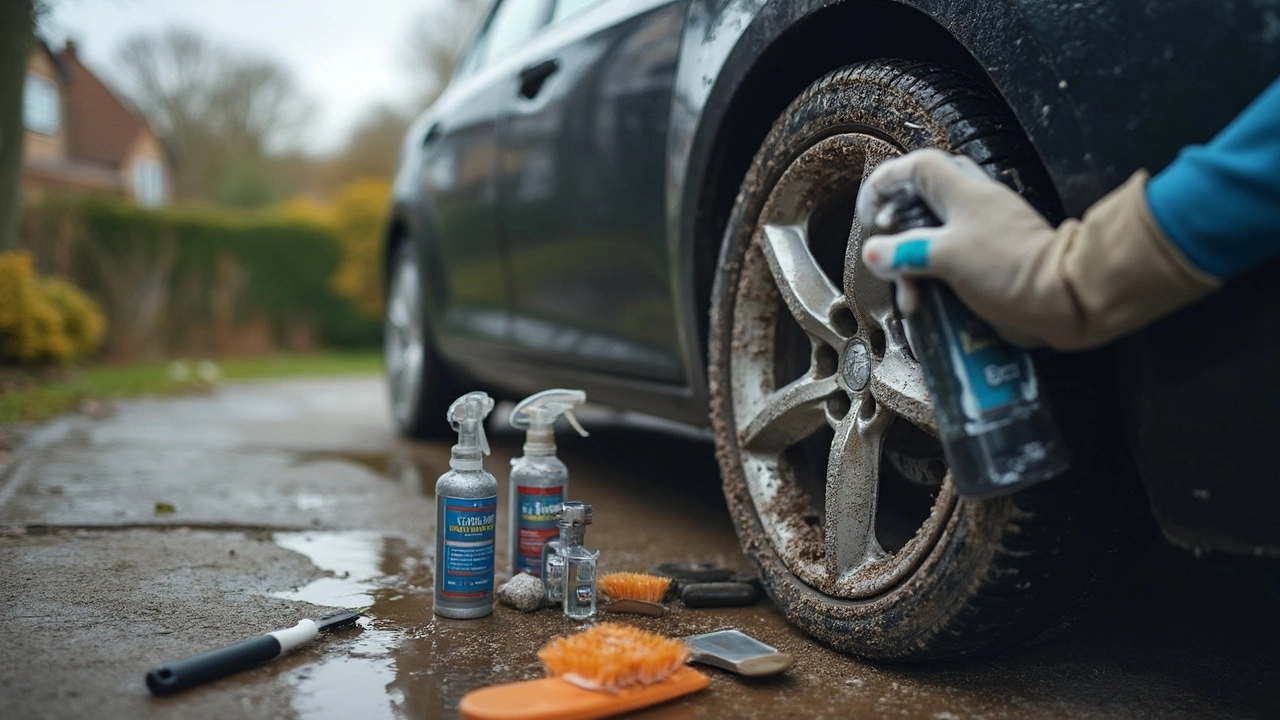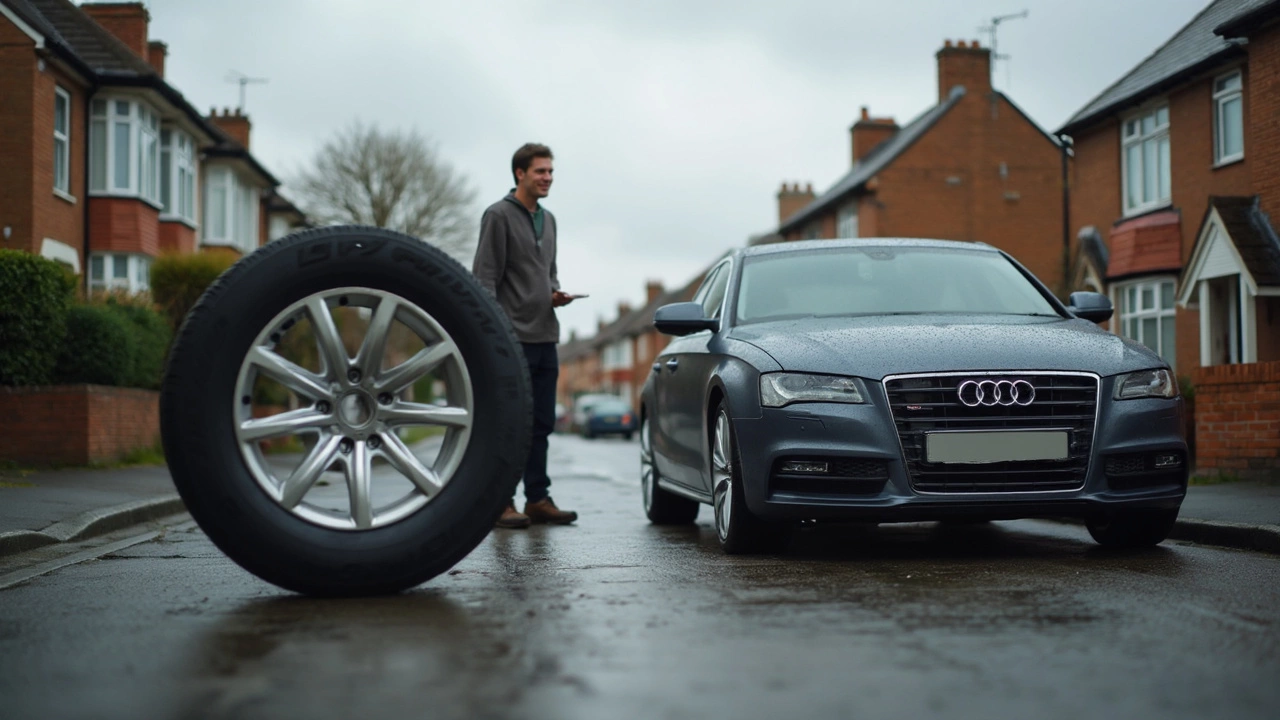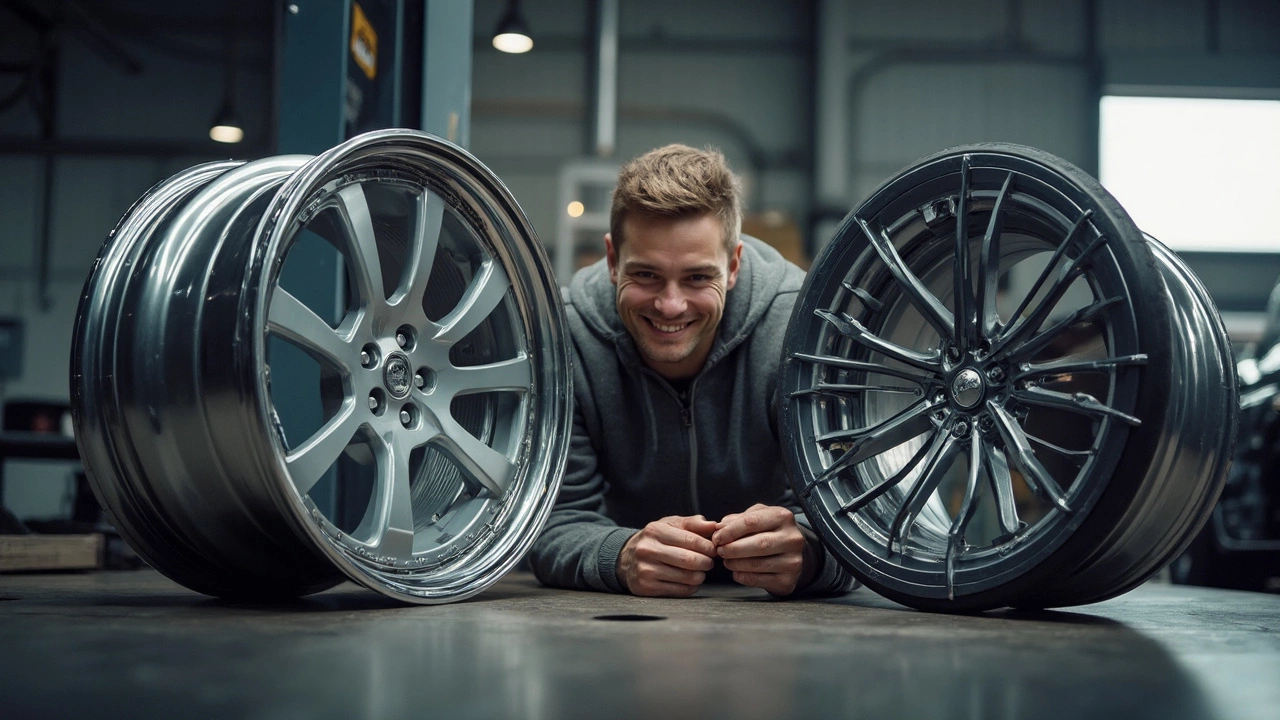Alloy Wheels: What You Need to Know Before You Buy
If you’re thinking about new wheels, alloy wheels are probably on your radar. They look sharp, can lighten your ride, and come in a ton of sizes. But the choices can feel overwhelming. Let’s break down the basics so you can pick the right set without wasting time.
Choosing the Right Size
First off, look at the numbers stamped on your current wheels. You’ll see something like 17x7.5 J. The first number is the diameter in inches – that tells you how tall the wheel is. The second number is the width, also in inches. Bigger isn’t always better; you need a size that fits your car’s suspension, brakes, and tires.
Next, check the bolt pattern. It’s the arrangement of the lug holes, shown as something like 5x112. You can find this info in your owner’s manual or online for your car model. A mismatched bolt pattern means the wheel won’t sit properly, which can lead to vibration or even damage.
Don’t forget the offset. Offset is the distance between the wheel’s mounting surface and its centerline. A wrong offset can push the wheel too far inward or outward, messing with steering and tire wear. Most manufacturers list the recommended offset range, so stick inside that zone.
Finally, think about tire size. When you change wheel diameter, you’ll also need a tire that matches the new wheel’s circumference. Use a tire size calculator or ask a local tyre shop to keep your speedometer accurate.
Pros and Cons to Consider
Alloy wheels have a few clear advantages. They’re lighter than steel, which can improve acceleration, braking, and fuel economy. The reduced unsprung weight also helps the suspension stay in contact with the road, giving you better grip.
They also look better. With more design options – spokes, finishes, colors – you can customize the look of your car without a full wrap. That’s why many owners pair alloy wheels with a fresh paint job or vinyl wrap for a cohesive style.
On the downside, alloy wheels can be more expensive than steel. If you hit a pothole, they’re more prone to cracking or bending, especially if the alloy is thin. Repairing a cracked alloy wheel can cost a lot, sometimes more than buying a new set.
Another thing to watch is corrosion. Some cheaper alloys aren’t properly coated, so over time you might see rust on the wheel face or the spokes. Regular cleaning and a quick wax can help protect the finish.
When you weigh these points, ask yourself what matters most for your daily drive. If you love the look and want a bit of performance boost, alloy wheels are a solid choice. If you drive on rough roads often, you might prefer a sturdier steel wheel or a thicker alloy designed for rough use.
Bottom line: measure your current wheels, match the bolt pattern, offset, and tire size, then decide if the style and weight benefits outweigh the higher cost and potential for damage. With the right fit, alloy wheels can make your car feel sportier and turn heads wherever you go.
Find out if alloy wheels need alignment and why it matters for your car’s health. This article explains what alignment does, signs it might be off, and why skipping this could cost you more than just tire life. Get practical tips for keeping your ride smooth and steering sharp. If you’ve ever hit a pothole or swapped to fancy rims, you’ll want these facts. Drive smarter, not harder.
Alloy wheels can make your car look sharp, but scratches are a real headache for drivers. This article breaks down how easily alloy wheels can get scratched, what causes it, and how you can keep them looking good for longer. Find out if certain finishes are more prone to damage and learn tips to protect your rims from curb rash and careless mistakes. If you want to keep your wheels spotless without spending a fortune, these tips are for you. No fluff, just the facts drivers actually care about.
Wondering how to make your alloy wheels look brand new again? This article breaks down the top cleaners that actually work on stubborn dirt, brake dust, and road grime. It covers the science behind why some cleaners outperform others, tips for safe cleaning, and what to avoid if you want to protect your wheels. Get real tips from hands-on experience—not just marketing claims. Say goodbye to dull, dirty alloys for good.
Wondering if you can use your old wheel nuts with new alloy wheels? This article spells out whether you really need special nuts for alloys, why it matters for your safety, and how the wrong choice can mean trouble. We break down the differences between steel and alloy setups, tips for spotting the right fit, and advice straight from hands-on experience. Save yourself from rounded nuts, loose wheels, and the headache of a wobbly ride. A must-read before swapping those wheels, especially if you’re doing it at home.
Wondering which wheel size gives the smoothest ride on your car? This article looks at how alloy wheel size affects comfort, road feel, and your everyday driving experience. You'll get clear advice, real-world tips, and unexpected facts about why bigger isn't always better. By the end, you'll know just what to look for if comfort is your top priority. It's a practical, no-nonsense guide for drivers who want their ride to feel just right.
Wondering if alloy wheels always mean aluminum? This article explains the real difference between alloy and aluminum wheels, breaking down how each is made and why it matters for your car. Learn about how to spot the differences, why drivers care about the material, and get tips for choosing the right wheels for your needs. We'll also cover what makes aluminum wheels so popular and whether they're always the best choice. By the end, you'll have a clear idea of what you're really getting when you buy 'alloys.'
Ever wondered how much cash you can get for scrapping your old alloy wheels? This article breaks down how scrap value is calculated, what affects the price, and what you can actually expect to pocket. Learn what makes alloy wheels valuable, get tips for getting the best deal, and understand how scrap yards handle used wheels. Whether you've got a bent set lying in your garage or you're swapping out for a new look, you’ll know exactly what to expect when it’s time for the scrapyard run.

